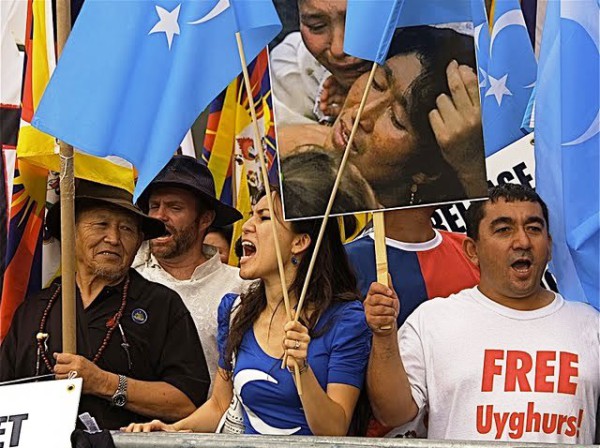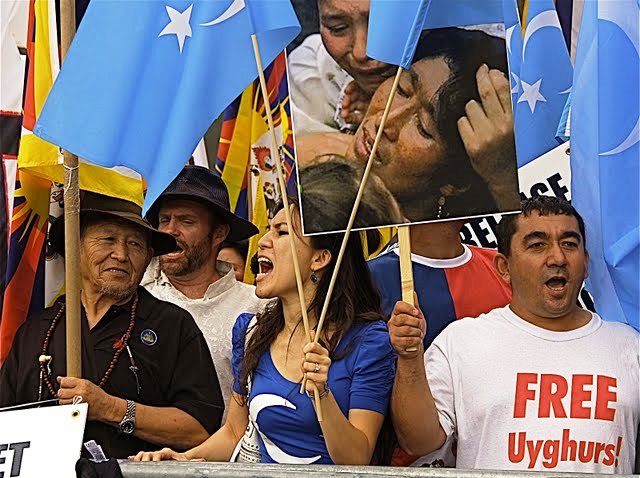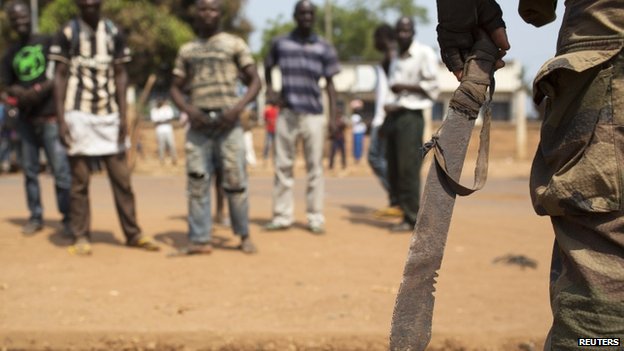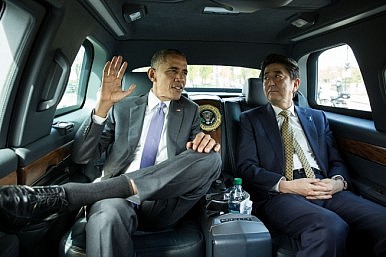 The recent Charlie Hebdo shooting brought the argument of the “clash of civilizations” and the relationship between the Muslim community and the West to the forefront of global public attention. Another incident furthering the theory took place yesterday at the Chinese-Vietnamese border. Two Uighurs (Chinese Muslims) were shot dead by the Chinese state police during a failed attempt to illegally cross the border to Vietnam, according to Chinese state media. The incident is a continuation and reflection of the long-standing tensions between the Uighur community and the majority Han population within China.
The recent Charlie Hebdo shooting brought the argument of the “clash of civilizations” and the relationship between the Muslim community and the West to the forefront of global public attention. Another incident furthering the theory took place yesterday at the Chinese-Vietnamese border. Two Uighurs (Chinese Muslims) were shot dead by the Chinese state police during a failed attempt to illegally cross the border to Vietnam, according to Chinese state media. The incident is a continuation and reflection of the long-standing tensions between the Uighur community and the majority Han population within China.
There have been reports of similar attempts made by Uighurs to cross into neighboring countries. Uighur activists say that these people are seeking asylum and fleeing persecution. Chinese authorities believe they are leaving the country to link up with “external hostile forces,” namely Islamic militant organizations like the East Turkestan Islamic Movement (ETIM), and the Turkestan Islamic Party (TIP).
Uighurs are Chinese and Turkic Muslims residing in Xinjiang, a region in west China bordering eight countries—Mongolia, Russia, Kazakhstan, Kyrgyzstan, Tajikistan, Afghanistan, Pakistan, and India. Its population consists of approximately 45% Uighur and 40% Han Chinese. The Uighur have a distinct ethnic, linguistic, cultural, and religious identity close to Central Asian nations. Throughout history the region has had close ties with China, constituting part of the Chinese empire in some periods and retaining relationship as a tribute state in other periods. An East Turkestan state existed very briefly in 1949 until the Communist government permanently took over in the same year. Since then, and especially in the 1990s, the central Chinese government introduced large scale modernization projects in the region accompanied by policies encouraging the migration of Han Chinese people to the region to assist with the development of various projects.
Many problems faced by members of the Muslim community in various parts of Europe are similar to the Uighurs’ in Xinjiang. In the case of the Uighur, the problem is exacerbated by a sense of loss and invasion, as Xinjiang used to be a region with an overwhelming Uighur majority, but now it is almost half Han Chinese. There are complaints that Han migrating to the region have exclusive access to more desirable jobs because of their technical capability and proficiency in standard Mandarin. The central Chinese government is also often accused of suppressing the expression of Uighur cultural and religious identity. Such means include banning Muslim government officials from fasting during Ramadan and limiting the number and scale of religious activities. Many Uighur fear the erosion of local identity by the Han Chinese, especially the Xinjiang Production and Construction Corps, a semi-military governmental organization that has administrative authority in the region.
The civil unrest has not stopped since the establishment of Communist rule in Xinjiang, and has intensified noticeably in the 1990s in the form of violent attacks in public places. Although the government has taken measures to suppress the sporadic violence, it showed no sign of going away. In the past few years there have been several attacks in both Xinjiang and other parts of China that have killed many civilians. Among the most recent and most widely publicized ones were the Tiananmen Square car crash in October 2013, and the Kunming train station mass knife attack in March 2014.
The authorities attributed these terrorist attacks to Uighur separatists helped by external extremist groups and have launched a widespread crackdown on terrorism, followed by arrests and executions. Activists, on the other hand, point to the resentment on the part of the Uighur as a result of decades of repression as the root cause of social unrest and violence in the region. Amnesty International pointed out in their 2013 report that Chinese authorities criminalized what they labeled as “illegal religious and separatist” activities and clamped down on peaceful expressions of cultural identity.
Michael Clarke, an expert on China’s Xinjiang region at the Asia Institute of Griffith University, Australia, incisively pointed out that the core problem from this perspective is that Uighur grievances arising from effects of the unevenness of the state’s modernization strategy and its repressive tendencies have no effective or “legitimate” outlet.
The recent incidents in Xinjiang remind us that cultural clashes, especially when intertwined with religious belief and practice, are far from an exclusively western phenomenon—China also has to deal with its problem between the Muslim population and the majority Han population. The Far East and the West face the problem of figuring out how to operate in and maintain a heterogeneous society with tolerance, dialogues, and mutual understanding between different cultural and religious communities. All of these are quintessential for avoiding either another Charlie or another Kunming.




